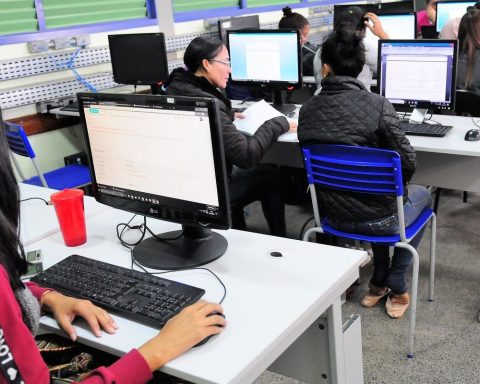The only way in the world to solve the pressures in the inflationary process is by raising interest rates to face the slowdown in the economy, assured Xavier Sala-i-Martin, economist and professor at Columbia University, after his participation in the XIX International Seminar of the International Association of Pension Fund Administrators (FIAP).
Presenting his economic perspective on the future of pension funds at the event, he explained that the problem of inflation is that there is a risk that, once it starts to rise, even though the causes have disappeared, it will be perpetuated, reaching levels so high that they cause a recession, but he clarified that, as long as the central banks adjust their rates, the risk is lower.
“The problem of inflation it is that its causes are temporary, like COVID-19 and the war in Ukraine,” he said.
Monetary politics
When referring to the increases that the Central Bank of the Dominican Republic (BCRD) has applied, which has eight increases in the rate of monetary politics so far this year, he considered that the regulatory entity “does the right thing”. “If this is not done, the inflation it perpetuates and accelerates,” he said.
He recalled that part of the main objective of monetary adjustments is to balance the balance of trade. “When the bank raises the interest rates there is less money on the street, therefore people buy less and this means that there is not as much demand, and that is why prices do not rise as much”, he said.
“We must applaud the Dominican Republic for this (adjustments to the rate of monetary politics). They are doing the right thing, even if it seems wrong, because right now it is what has to be done to slow down the economy,” said the international expert.
Last week, a group of leading economists from the United Nations Organization (UN) warned that countries are on the verge of a global recession as a result of the constant increases in interest rates to face the inflation.
In the report in which they analyze whether the monetary measures that are being applied in the countries to contain the impact of the inflation are positive, it is warned, as a concrete danger, that what is coming (recession) will be worse than the financial crisis of 2008 and the COVID-19 pandemic, with social costs that would push millions of additional people into extreme poverty.
Increase wages
The economist, invited by the Dominican Association of Pension Fund Administrators (Adafp), also considered that increasing workers’ wages is a fair and necessary measure to balance people’s purchasing power.
He understands that it should be done in general, taking into account the real rate of the inflationwhich will also have a positive impact on pension funds.
“Today, in the world of inflation we live, it is important that people do not lose purchasing power. Wages must be increased because purchasing power must be maintained. This should be a government goal,” she pointed out.
The economist explained that, if the workers do not have purchasing power, the economy stagnates. For this reason, he estimates that if employees’ wages are increased by 10%, for example, it contributes to economic dynamism, because employers increase the prices of products, and so on.
He explained that when the countries were facing the coronavirus, a maritime container cost 22,000 dollars, however, today it costs 2,000 dollars again, which indicates that the inflation is stationary and that some costs are falling.
He also highlighted what has happened with the price of fuels, as a result of the war between Russia and Ukraine, which increased the price of oil and gas, but pointed out that these prices are also going down again.

















